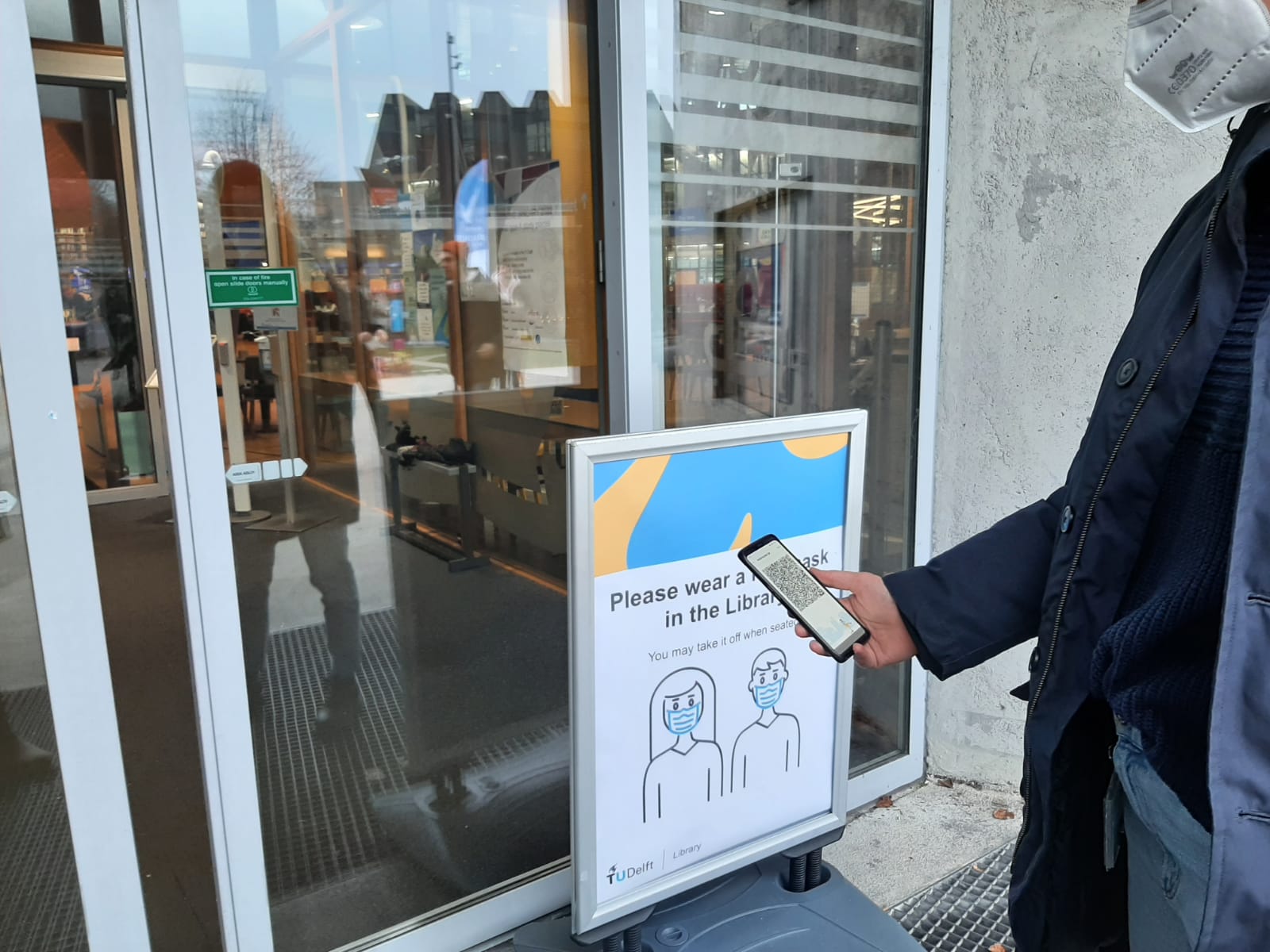Checking a 2G corona pass reduces the number of infections at events by up to 25 per cent. Modelers from the safety sciences department expect the same at lectures.
Is it a good idea to introduce a QR-check? The researchers deliberately withheld their opinion on this issue. (Photo: Katja Wijnands)
Should there be a check of a corona pass at the entrance to a teaching building or a lecture hall, or not? Aside from concerns about pressure and coercion or offering alternative forms of education, it was not yet known if a QR-check makes a difference. In other words, will allowing access only to vaccinated people or those who have recovered from a coronavirus infection (in current terms: 2G policy) lead to fewer infections than if unvaccinated people are allowed in with a negative test result?
Based on models commissioned by Fieldlab evenementen, researchers from the safety sciences research group (Faculty of Technology, Policy and Management, TPM) have shown that a 2G policy at events leads to 25% fewer infections and 93% fewer hospital admissions than a 3G policy.
‘There is no choice that is not accompanied by disadvantages.’
The same effect can be expected at lectures at the university, claim the researchers when asked. There may even be a lower rate of hospital admissions as this group of people is young. If the vaccination rate is high, as may be expected among students, the differences are a bit smaller: 20% fewer infections and 89% fewer hospital admissions.
Is it a good idea therefore to introduce a QR-check? The researchers deliberately withheld their opinion on this issue. “Managers will have to weigh up the matters that cannot be compared. There is no choice that is not accompanied by disadvantages. We are restricting ourselves to calculating the consequences of the different choices. We have not examined other arguments either for or against.”
- Delta is polling until 10 AM on 18 November to find out what students and employees of TU Delft want. Fill in our survey.
- Given the increasing polarisation in the debate about coronavirus measures, the researchers requested the editorial team not to give their names.
Do you have a question or comment about this article?
j.w.wassink@tudelft.nl


Comments are closed.